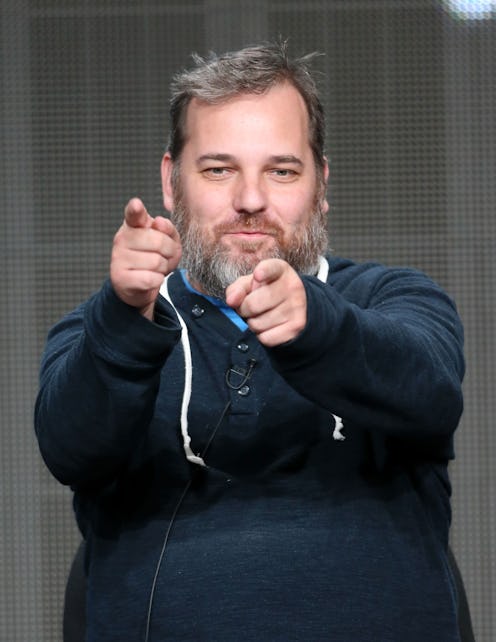Entertainment
The Messed-Up Mind Of Dan Harmon
Dan Harmon is a unique figure in television: Scorned, worshiped, forthcoming, examined. With CommunitySeason 5 returning to America's televisions in just a few weeks, Harmon has a great number of eyes on him and his welcome return to the show he was so famously fired from. As such, on Wednesday, The New York Times ran a profile of this return.
The profile, written by Dave Itzkoff, is an intriguing look at a man who has always been extremely devoted to his work. That work, in this case, was taken away from him, only to be offered back after a year and a severe fall from critical grace later.
Since Community hit the air in 2009, Dan Harmon has bee an public presence. He is also, as Itzkoff describes him, a man who "possesses a feral beard and the shambling gait of a bear newly emerged from hibernation," and that is an image that should be treasured forever.
Harmon is a figure in television in almost a literary sense; he's a Salinger or a Hemingway, not in his work necessarily, but in the public intrigue that has followed him.
Very unlike Salinger, however, Harmon does not live a hidden life — in fact, there are few creators today who speak as openly and honestly about their thoughts as he does, which is another reason why this New York Times article is one worth noting: He says some fascinating stuff about his return to the show, his creative strife, and his view of himself and what he's making.
Here are some of the most intriguing soundbites:
On his return to the show:
I’m not flattered by it, and I don’t feel vindicated or boosted by it.
Some classic self-immolation:
You can’t undo bad work that gets done up here. The typewriter is where you’re making your first choices that you can never unmake again.
On stressing himself out now that the creative powers that be at NBC and Sony have taken a backseat:
The stress that I’m under because there’s no stress is the final word on that. It’s pathological. It’s this engine that makes this sound over and over.[...][As a therapist might say] You’re addicted to being unfulfilled. You’re not actually unfulfilled — you’re addicted to casting yourself in the role of martyr or being misunderstood.
On Donald Glover's exit from the show:
It was important to look at it and say, ‘This is awful.' We wish this wasn’t happening. And that’s part of life. A huge portion of our lives is stuff we don’t want to happen, happening.
And back to that creative ping-pong game:
[I think I've done well] and then I eat a sandwich, and the sandwich makes me think I messed up on a fundamental level. Then I drink a glass of milk, and the milk makes me realize it’s the greatest season in television that’s ever existed.
And my favorite, which I will be quoting for years to come as if someone like Hemingway actually said it:
It’s the most narcissistic thing in the world. Hating yourself and worshiping yourself are the exact same thing.
You can read the full New York Times article here, and in fact you should, as it contains all sorts of quotes from all the different corners of creating Community, and a whole lot of absorbing rumination on the behind-the-scenes of creating one of the most memorable shows in sitcom history.
